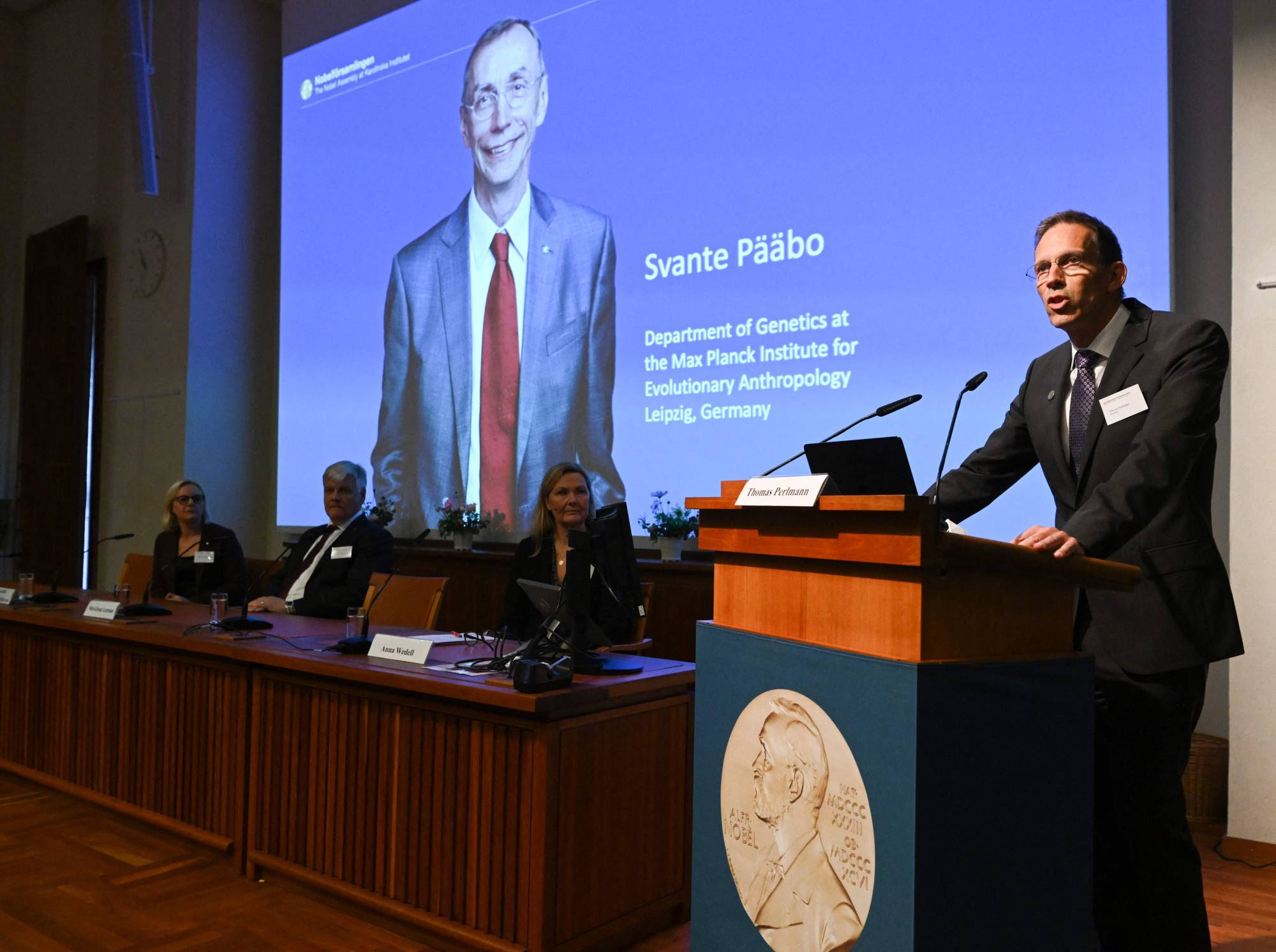The winner of the 2022 Nobel Prize in physiology or medicine, Sweden’s Svante Paabo, during a news conference at the Karolinska Institute in Stockholm on Monday. | AFP-JIJI
It is the consecration for the Swedish Svante Pääbo, pioneer of paleo genomics, and the complete sequencing of the genome of the Neanderthal man. The foundation of this discipline goes back to the DNA of the depths of the ages to shed light on human genes.
“By revealing the genetic differences that distinguish all living humans from extinct hominids, his discoveries have provided the basis for exploring what makes us humans so unique,” the Nobel jury praised.
Svante Pääbo, a 67-year-old Swede who has lived in Germany for decades, discovered in 2009 that a gene transfer of about 2% occurred between these now extinct hominins and Homo sapiens.
This ancient gene flow to present-day humans has physiological relevance today, for example, by affecting how our immune system responds to infections.
“The genetic differences between Homo Sapiens and our closest now-extinct relatives were unknown until they were identified through Pääbo’s work,” the Nobel Committee praised in its decision.
Going back to the genesis of humans, Neanderthals coexisted for a time with modern humans in Europe before disappearing entirely about 30,000 years ago.
Pääbo, a native of Stockholm, had long been considered a Nobelist but had fallen off the list of favourites in recent years.
His father, Sune Bergström, also received the Nobel Prize in Medicine in 1982.
The Nobel Prizes continue in Stockholm on Tuesday, October 4, with physics and Wednesday, October 5, with chemistry, before the highly anticipated prizes for literature on Thursday, October 6, and for peace on Friday, October 7, the only award given in Oslo. The most recent economics prize closes the following Monday, October 10.
This is the 113th Nobel Prize in Medicine, and there are now 226 individuals to have been awarded the prize “for physiology or medicine” since its creation, including 12 women. No organization has ever been awarded, which is forbidden by the rules of the Karolinska Institute, which awards the prize.
In 2021, the prize went to two Americans, David Julius and Ardem Patapoutian, for their discoveries on the functioning of touch.
American or U.S.-based male researchers still largely dominate the scientific Nobel Prizes in recent decades, despite the efforts of juries to award more women.
The Nobel 2021 had not departed from the rule, with 12 laureates and only one woman. All the scientific prizes had gone to men.



Comment here